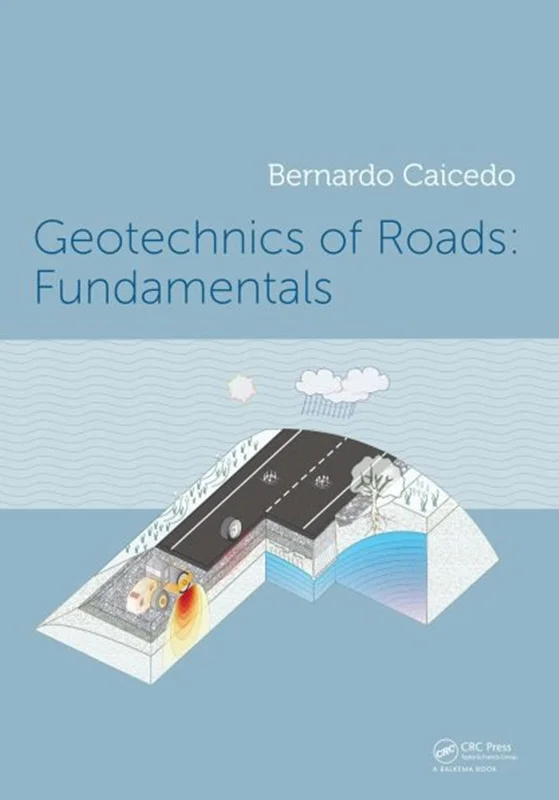Geotechnics of Roads: Fundamentals
Bernardo Caicedo, B07LCXZYB1, 1138600571, 978-1138600577, 9781138600577, 1032059494, 978-1032059495, 9781032059495
English | 2019 | PDF | 15 MB | 461 Pages
At first glance, roads seem like the simplest possible geotechnical structures. However, analysis of these structures runs up against complexities related to the intense stresses experienced by road surfaces, their intense interaction with climate, and the complicated behavior of the materials used in road construction. Modern mechanistic approaches to road design provide the tools capable of developing new technical solutions. However, use of these approaches requires deep understanding of the behavior of constituent materials and their interaction with water and heat which has recently been acquired thanks to advances in geotechnical engineering. The author comprehensively describes and explains these advances and their use in road engineering in the two-volume set Geotechnics of Roads, compiling information that had hitherto only been available in numerous research papers. Geotechnics of Roads: Fundamentals presents stresses and strains in road structures, water and heat migration within and between layers of road materials, and the effects of water on the strength and stiffness of those materials. It includes a deep analysis of soil compaction, one of the most important issues in road construction. Compaction accounts for only a small proportion of a construction budget but its effects on the long-term performance of a road are decisive. In addition, the book describes methodologies for nondestructive road evaluation including analysis of continuous compaction control, a powerful technique for real-time quality control of road structures. This unique book will be of value to civil, structural and geotechnical engineers worldwide

